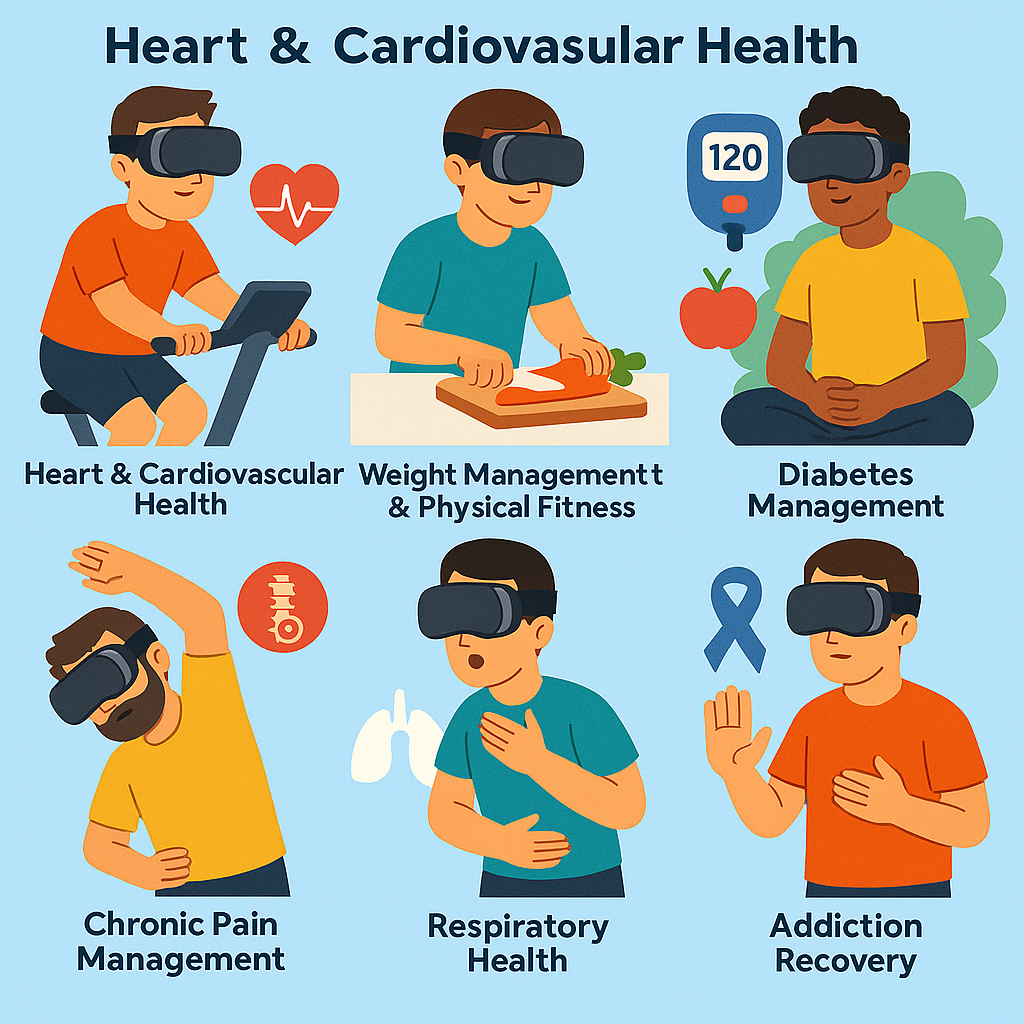
How Virtual Reality (VR) Can Help Men with Health Challenges
Virtual Reality (VR) technology offers powerful and engaging solutions for men facing a variety of health challenges. From improving heart health to supporting mental well-being, VR creates immersive environments that make health management more interactive, private, and effective.
Heart & Cardiovascular Health
Description: Conditions include heart disease, hypertension, and high cholesterol.
How VR Helps: VR offers guided low-impact workouts, stress-reducing immersive environments, and interactive education on diet and lifestyle changes.
Benefits: Benefits include improved heart health, weight loss, and reduced stress.
Weight Management & Physical Fitness
Description: Conditions include obesity, low muscle strength, and poor endurance.
How VR Helps: Gamified VR workouts make exercise enjoyable, virtual kitchens teach healthy cooking, and tracking tools monitor progress.
Benefits: Benefits include increased physical activity, better nutrition habits, and improved body composition.
Diabetes Management
Description: Conditions include Type 2 diabetes and prediabetes.
How VR Helps: VR provides nutrition education, simulations of blood sugar changes, and virtual health coaching.
Benefits: Benefits include better blood sugar control, reduced complications, and healthier eating.
Mental Health & Stress
Description: Conditions include depression, anxiety, and burnout.
How VR Helps: VR offers calming meditation, guided therapy simulations, and virtual social interaction to combat isolation.
Benefits: Benefits include better mood, reduced stress, and improved resilience.
Chronic Pain Management
Description: Conditions include back pain, arthritis, and joint problems.
How VR Helps: Pain distraction games, VR stretching programs, and posture education help reduce discomfort.
Benefits: Benefits include reduced pain, better mobility, and less reliance on medication.
Respiratory Health
Description: Conditions include COPD, asthma, and post-COVID lung recovery.
How VR Helps: VR guides breathing exercises in calming environments and adapts workouts to lung capacity.
Benefits: Benefits include improved lung function, stamina, and breathing control.
Men’s Cancers
Description: Includes prostate cancer, testicular cancer, and other male-specific cancers.
How VR Helps: VR educates patients on treatments, teaches relaxation for side effect management, and guides exercise recovery.
Benefits: Benefits include less anxiety, better understanding of treatment, and improved recovery.
Addiction Recovery
Description: Conditions include alcohol, tobacco, and drug addiction.
How VR Helps: VR provides trigger resistance training, stress management exercises, and education on health impacts.
Benefits: Benefits include improved self-control, fewer relapses, and better health outcomes.
